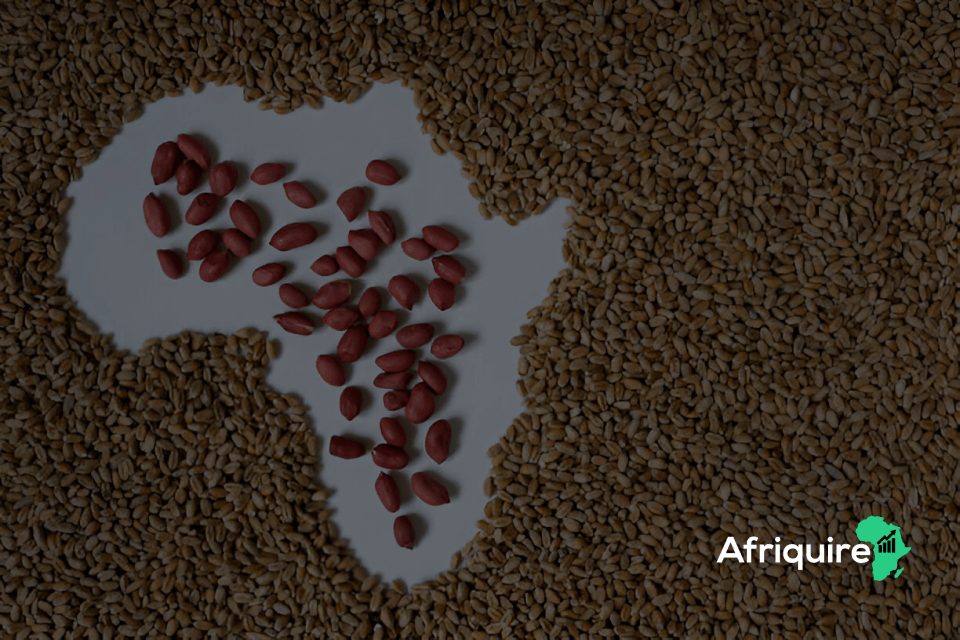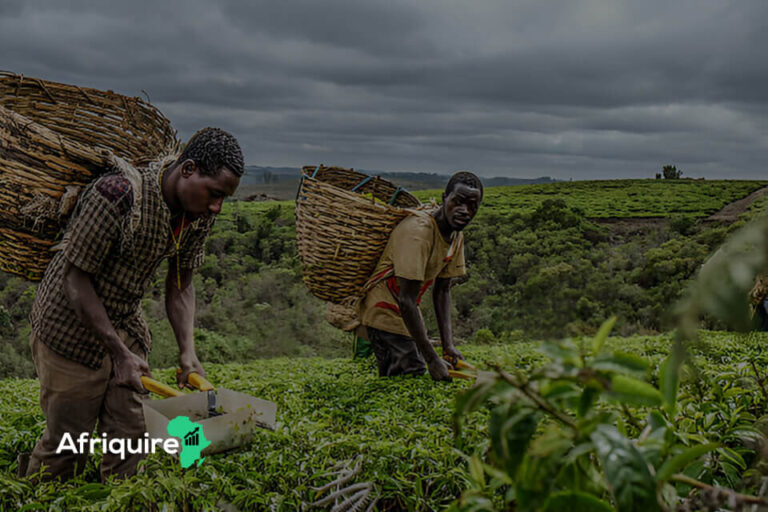- Introduction
- Introduction: The Importance of Sustainable Farming
- Defining Agripreneurs and Sustainable Farming
- Key Principles of Sustainable Farming
- How Agripreneurs are Leading the Way in Sustainable Practices
- The 5 Environmental and Economic Benefits of Sustainable Farming
- 5 Challenges in Implementing Sustainable Practices
- The Future of Sustainable Farming in Africa
- Frequently Asked Questions (FAQs)
- Conclusion
Introduction
Agripreneurs are like superheroes. The role of agripreneurs in sustainable farming is vital as young farmers adopt ingenious ideas to grow food. Despite the ever-changing climate conditions and food insecurity, agripreneurs have found ways to make agriculture sustainable. They use methods that save water, reduce waste, and protect the soil to keep the environment healthy for future generations.
The role of agripreneurs in sustainable farming is very important because they have proven that we can grow food and take care of our environment simultaneously. They use organic farming techniques and sustainable solar and wind energy to grow crops. Agripreneurs should be encouraged with training and funding to improve and inspire others.
Introduction: The Importance of Sustainable Farming
The future of farming in Africa is sustainable farming. It solves present farming challenges and also prepares for the future. Agripreneurs can help build a stronger, greener, and more successful African agriculture system.
Overview of The Challenges Facing African Agriculture
African agriculture is experiencing serious challenges and these problems affect food distribution and the income of farmers.
- In Africa, climate change has led to erratic weather conditions, like floods and droughts, making farming tougher.
- A large number of African farmers are still reliant on old farming methods that are not suitable for a changing environment and large consumer base.
- Lack of infrastructure is an issue Africans, including farmers, face. Bad roads, lack of access to markets, and little to no financial support are some factors that make things even worse.
To address these challenges, farmers must adopt sustainable farming practices for survival and success.
Need for Sustainable Farming Practices in Africa
Sustainable agriculture involves going through the entire food production process – planting, growing and harvesting food – without harming the environment, using harmful chemicals, wasting resources such as water and soil, or damaging local communities. This is important since it ensures that newly adopted crop production processes will go on for a long time without damaging the earth.
Here are what sustainable farming practices involve:
- It improves soil health: Using crop rotation, which involves planting different crops each season, can make the soil richer.
- It reduces the use of injurious chemicals: Organic farming avoids using noxious chemicals that would result in environmental degradation.
- It prepares for climate change: Agroforestry provides shelter to farmlands against bad weather, such as high winds or heavy rains that might be very destructive to crops.
Farmers will have stronger farms that can withstand floods and droughts with these methods. In return, it will be a way for Africa to attain food security and conserve natural resources.
Role of Agripreneurs in Promoting Sustainable Farming
Agripreneurs are leading the way in promoting sustainable farming across Africa. Here’s how agripreneurs are playing their role in sustainable agriculture:
- Bringing New Ideas: Agripreneurs introduce technologies like drip irrigation, which saves water, or organic pest control, which avoids harmful chemicals.
- Farmer Education: They educate farmers on why one method is better than another and how to use better methods. This puts farmers in a better position to make educated farm decisions. For instance, an agripreneur might begin a project to teach local farmers about agroforestry. These farmers can grow more crops on the same lands while protecting them from erosion by planting trees that give shade.
- Building Networks of Farmers: Many Agripreneurs create farmer groups or cooperatives to share resources and have a larger market.
Defining Agripreneurs and Sustainable Farming
Agriculture in Africa is more than just growing crops. It’s about feeding people, creating jobs, and protecting the environment. Agripreneurs are entrepreneurs who combine farming with smart business ideas to make agriculture better and more sustainable while having socio-economic impacts.
Definition of Agripreneurs and Their Role in African Agriculture
Agripreneurs are farmers who have combined farming with business. They think like businesspeople. They don’t just plant and harvest crops but find creative ways to solve farming problems, such as using technology to grow more food or creating. Apps to connect farmers with buyers. They are also interested in marketing farm products
Agripreneurs are very instrumental in promoting sustainable farming in Africa. They introduce modern tools and methods to farmers that help save time and money. These tools help to ensure more productivity and profitability. Agripreneurs also contribute to their communities by creating jobs and ensuring farmers can sell their products fairly.
Principles of Sustainable Farming and Their Importance
Sustainability farming refers to cultivating food with little harm to humans and the environment. It requires judicious use of resources to ensure they will last long, even for future generations.
Here are some principles of sustainable farming:
- Soil Health: Sustainable farming is focused on maintaining soil fertility. Farmers apply natural fertilisers and crop rotation methods to retain soil richness and fertility.
- Water Conservation: Smart systems, like drip irrigation, assist farmers in using less water while still reaping healthy produce.
- Biodiversity involves planting different crops and keeping various animals, making the farms stronger and less prone to infertility.
- Community Engagement: This involves farmers interacting with their communities on how farming activities should respect local traditions and needs.
Overview of The Benefits of Sustainable Farming in Africa
Sustainable agriculture is all about growing food in a way that’s good for both people and the environment. Sustainable farming has several benefits in Africa.
- It helps farmers grow more crops, save water, and keep the soil healthy.
- By using fewer chemicals, it protects nature and supports animals and plants.
- It also helps small farmers earn better, creates jobs, and grows the local economy.
- Sustainable farming ensures enough food for everyone today and in the future!
This is the point where the role of the agripreneur in sustainable farming becomes indispensable. Agripreneurs teach modern methods and ways of applying them on the farms to farmers. They also connect the farmers to markets, which ensures that farmers earn an income worthy of their hard work.
Some agripreneurs assist farmers to grow organic vegetables that fetch them higher prices in the market. Others arrange training to teach farmers how to use renewable energy sources such as solar power. Agripreneurs have to inform farmers about the benefits of sustainable farming.

Key Principles of Sustainable Farming
Sustainable farming is all about producing crops and rearing animals to ensure the environment’s protection while guaranteeing food for future generations. Let’s look at the key principles and how agripreneurs have an important role to play in this.
Conservation of Natural Resources
The first principle of sustainable farming is the preservation of natural resources. It starts with the resources essential to agriculture – water and soil. Through methods such as planting cover crops, amongst other methods, farmers can prevent soil erosion and keep the soil in good condition to grow produce for years to come.
Efficient Use of Water and Energy
Water and energy are scarce resources in Africa. Sustainable farming would help to use water wisely and avoid wastage. One of the methods sustainable farming employs is drip irrigation. It is a technology that delivers water to crops using small pipes and emitters, releasing water drop by drop at the plants’ roots. It can help to minimise water consumption, enhance agricultural productivity, and save labour. Although farmers in water-scarce areas use this method, those with easy access to water can also employ this method to maximise resources.
Also farmers can adopt renewable energy, such as solar panels, to run the farm. This will not only reduce the costs but also contribute to environmental protection. Agripreneurs contribute by introducing new technology and teaching farmers how to save water and energy.
Minimization of Chemical Use and Waste
Using too many chemicals in farming, such as pesticides and fertilisers, has exposed people to health hazards and negatively affected the environment. Sustainable farming encourages using organic alternatives and natural ways of pest management, such as planting specific crops that keep pests away.
This reduces chemical waste, keeps food healthier, and protects the ecosystem. Agripreneurs play their role by promoting such eco-friendly methods among fellow farmers.
Promotion of Biodiversity and Ecosystem Services
Biodiversity is about growing different plants and rearing animals and insects on a farm. Biodiversity is vital because various species, plants, and animals interact and rely on one another. For example, bees and other insects transport pollen from one plant to another, allowing them to reproduce. This aspect of biodiversity strengthens farms’ resilience to perturbations such as infection or bad weather conditions.
Agroforestry, growing trees alongside crops, or intercropping, in which several crops are planted together, enhances soil conditions and provides habitat for useful insects.
Improvement of Soil Health and Fertility
Healthy soil is the backbone of sustainable farming. Farmers can adopt these practices
- Crop rotation – changing crops every season.
- Organic composting – recycling organic materials, like food scraps and plant waste, into nutrient-rich soil called compost.
to enhance their soil’s fertility. This enhances crop yield and maintains soil productivity over time.
By following these principles and learning from agripreneurs, farming can be kept productive and eco-friendly for years to come!
How Agripreneurs are Leading the Way in Sustainable Practices
Entrepreneurs in agriculture are changing the face of farming with modern, sustainable farming methods. Let’s see exactly how agripreneurs are creating better and greener farming.
- Adoption of Climate-Smart Agriculture
Agripreneurs are interested in adopting climate-smart agriculture (CSA) to address the issues brought about by climate change. Using CSA helps farmers grow more food without emitting more damaging greenhouse emissions into the environment. For example, by planting drought-resistant crops or conserving water, the agripreneur assures food security when the weather goes bad.
- Use of Precision Agriculture and Technology
Farmers like precision agriculture, which involves monitoring agricultural conditions using drones, sensors, and Global Positioning Systems (GPS). These devices indicate how much water, fertiliser, or insecticides a certain plant needs. Thus, nothing is wasted, and the crops are healthier. Instead of irrigating the entire farm, a drone hovering over the field may show which regions need to be irrigated. This helps to conserve water and increase crop yields on the farm.
- Implementation of Organic and Regenerative Farming
Agripreneurs are starting to break away from destructive ways of farming and are adopting organic and regenerative agriculture. These methods work to improve the health of the soil by avoiding the use of chemical fertilisers and pesticides.
Regenerative farming also helps restore biodiversity, restoring various types of plants, animals, and insects that are useful on the farm. This ensures continuity of agriculture for generations to come.
- Development of Sustainable Value Chains and Markets
Agripreneurs develop sustainable value chains and markets that connect farmers directly to consumers. This way, they help farmers increase their incomes and reduce losses along the value chain. For example, agripreneurs identify local markets where fresh produce is sold quickly instead of having food spoiled during transportation over long distances.
- Empowerment of Smallholder Farmers and Communities
Agri-entrepreneurs do not only focus on their farms but also contribute to the community by teaching smallholder farmers better farming techniques and giving them the necessary tools and seeds to operate. This, in turn, strengthens the communities and makes them more resilient to climate-related issues.

The 5 Environmental and Economic Benefits of Sustainable Farming
Sustainable farming is a newly developed smart way to grow food that protects the environment while helping farmers make more money. Here are 5 benefits of sustainable farming for the environment and economy.
- Improved Soil Health and Fertility
Poor soil health can be expensive with poor yield. Healthy soil is the foundation of good farming. Sustainable practices like crop rotation (growing different crops in the same area at other times) and organic agriculture help the soil stay rich and fertile. Fertile soil means crops grow better and healthier. Agripreneurs are not only adopting these practices but also creating awareness about them.
- Increased Crop Yields and Productivity
A healthy soil leads to better crop growth, healthy harvests and productivity, and increased crop yield. Agripreneurs use innovative, environmentally friendly methods to raise productivity. They introduce farmers to new techniques, such as organic fertilisers and ecologically safe pest control, that ensure a better harvest.
- Enhanced Biodiversity and Ecosystem Services
Biodiversity refers to various plants and animals in a particular area. This is important in ensuring that nature remains balanced and healthy. Sustainable farming encourages biodiversity through the protection of local wildlife and plants. Agripreneurs encourage farmers to plant cover crops, which help improve the soil and provide shelter for small animals and insects that are helpful in the ecosystem.
- Reduced Greenhouse Gas Emissions and Climate Change
Sustainable farming includes minimal use of chemicals and machines. This would help to lower greenhouse gas emissions. It contributes to the fight against climate change and global warming. The agripreneurs demonstrate to other farmers that farming can be productive and not harmful to the environment—for example, agripreneurs support.
- Improved Livelihoods and Income for Farmers
Sustainable farming is not only good for the environment but also great for farmers. Most people are willing to pay more for food grown sustainably. Agripreneurs help farmers sell their produce to these markets for a better income. They also connect smallholder farmers to buyers of eco-friendly products, hence making farming more profitable.
Agripreneurs’ contribution to sustainable farming cannot be overestimated. In promoting eco-friendly ways, they help farmers grow healthier crops, protect biodiversity, fight climate change, and earn more.
5 Challenges in Implementing Sustainable Practices
Sustainable farming is a great idea, but it’s not always easy. Farmers face many challenges, and that’s where agripreneurs come in. They help farmers solve problems and make sustainable farming work. Some 5 challenges encountered are thus:
- Limited Access to Finance and Credit
One major challenge involves small farmers lacking the finances to invest in the technology for sustainable farming, including better tools, organic seeds, or fertilisers that may be costly. Access to bank loans and lender credit facilities is also usually minimal, which adds to the problem. Agripreneurs help by finding means to provide access to finance or by creating cheaper solutions for farms.
- Lack of Technical Knowledge and Skills
Sustainable farming methods, such as less water use or not using harmful chemicals, demand certain skills. However, most farmers are unaware of how to do this because they have never been trained in these techniques. Agripreneurs come into play here by teaching farmers new techniques and knowledge in sustainable food production.
- Limited Access to Markets and Market Information
Farmers also face major problems while trying to sell their crops. Sometimes, they are confused about where to sell, where to get buyers, or at what prices to sell goods. Agripreneurs provide access to buyers as well as help farmers secure markets for their sustainable commodities.
- Climate Change and Weather Variability
Climate change makes weather less predictable and, thus, more difficult to farm. Heavy rains, droughts, or unexpected heat can ruin harvests. Agripreneurs are helping farmers adapt by promoting climate-smart practices like planting drought-resistant crops or using better irrigation systems.
- Policy and Regulatory Frameworks
Government policies don’t always support sustainable agriculture. Many policies favour large-scale farming or harmful methods. Agripreneurs fight these policies and work their way out to push better governmental policies for sustainable agriculture.
The Future of Sustainable Farming in Africa
Sustainable farming is increasingly becoming vital to African development, and the future appears very brilliant. Looking into the future, some exciting changes will take place in how farmers grow food.
- Increased Adoption of Technology and Innovation
One of the most important changes is the increased use of technology and innovation in farming. Farmers now use mobile apps to get weather updates, learn new farming techniques, and connect directly with buyers. This helps them make smarter decisions about when to plant and harvest their crops.
For instance, drones monitor crops from above to save time and resources. The tech-savvy approach is very important for agripreneurs. Agripreneurs can farm more efficiently, produce better crops, and reduce waste with technology.
- Growing Demand for Sustainable and Organic Produce
As more people realise the importance of eating healthy and caring for the planet, the demand for sustainable and organic produce is growing. This is great news for farmers who focus on organic farming methods. Consumers are more interested in food grown without harmful chemicals, and agripreneurs can help meet this demand. Agripreneurs are also at the frontline, creating awareness among the public about the benefits of organic foods and ensuring their farms adhere to such standards.
- Expanded Access to Markets and Finance for Agripreneurs
Farmers in many African countries can now sell their products directly to consumers or online. This has increased farmers’ reach to consumers easily. Financial institutions are increasingly offering loans specifically targeting smallholder farmers. This enables agripreneurs to invest in improved seeds, equipment, and training programs that enhance their farming skills for more productive and sustainable farming. The future offers unlimited access to all the funding agripreneurs need, especially when their usefulness is discovered.
- Increased Focus on Climate Change and Sustainability
In an ever-changing climate, there is an even greater need for farmers to adapt in their ways. Climate-smart agriculture refers to farming practices that minimise environmental damage and aid farmers in adapting to changing weather patterns. Compared to now, there will increased focus on climate change and sustainability. This is because agripreneurs are pioneering this cause by introducing smart farming solutions that enable farmers to deal with droughts, floods, and other weather changes.
- Empowered Smallholder Farmers and Communities
There is a need to empower smallholder farmers and communities. Agripreneurs are helping farmers learn better farming techniques, get better access to markets, and improve their livelihoods. They provide training and support, making sure that even small farmers have the chance to succeed. These present steps will lead to more empowered farmers who know all about sustainable farming.

Frequently Asked Questions (FAQs)
1. Who is an agripreneur?
An agripreneur is an individual who incorporates agriculture with entrepreneurship. He started and operated a business venture in farming or related to agricultural products. Agripreneurs play a vital role in enhancing food production and offering job opportunities.
2. How do agripreneurs contribute to sustainable farming?
Agripreneurs ensure that farming is done sustainably by using environmentally friendly methods. They mostly focus on techniques that will not harm the environment, like organic farming or using renewable resources.
3. Why is sustainable farming important?
Sustainable farming helps protect our planet’s resources. It aims to achieve food production without depleting the soil, water, and biodiversity. This means growing food while taking care of the environment.
4. What challenges do agripreneurs face in sustainable farming?
Agripreneurs face challenges like lack of funding, climate change effects, and market access issues.
5. What is the role of technology in agripreneurship regarding sustainable farming?
Technology helps agripreneurs improve efficiency and reduce waste. For example, drones for monitoring crops or apps for managing farm operations can yield better yields using fewer resources.
Conclusion
Agripreneurs play an indispensable role in sustainable farming. They use new ideas and technologies to develop efficiency within farming while also considering the protection of promoting sustainable farming methods, minimising wastage, preserving the soil, and improving the environment. Agripreneurship has been developing ways to grow food to keep the planet healthy, the economy strong, and society thriving. By promoting sustainable farming methods, they minimise wastage, preserve the soil, and generate more value for local communities.
The role of agripreneurs in sustainable farming is key to solving many of the challenges we face today. They produce food, provide employment, and help disseminate improved farming practices. And with more young people becoming interested in agribusiness, the future is in store for more sustainable and successful farming. Agripreneurs are truly shaping a better world through their work in sustainable agriculture.



